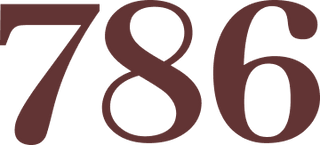Earlier today, Sheikh Saad Tasleem posted a video with some great reminders regarding the month of Dhul-Hajj. This is a month where millions of Muslims from all corners of the glove make their way to Mecca to perform the righteous pilgrimage. For those of us who are not making the journey of Hajj this year, don't fret! We can still benefit tremendously from the month of Dhul-Hajj even if we are physically not in Mecca. In fact, this month is one of the holiest and most blessed months after Ramadan. In fact, it was narrated from Ibn ‘Abbaas (may Allah be pleased with him) that the Prophet Muhammad (peace and blessings of Allah be upon him) said:
“There are no days on which righteous deeds are more beloved to Allah than these ten days.”
Use this month to reassess your relationship with Allah and allow yourself to once again feel that great, heightened sense of nearness to God as you once did during Ramadan. Give yourself the opportunities to benefit from the blessings this month has to offer. So although you can't be in Mecca for Hajj, here are five things you can do to make the most out of this month.
[embed]https://www.facebook.com/saadtasleemofficial/videos/2122798631312293/[/embed]
1. Fasting
The beloved Prophet Muhammad used to fast the first 9 days of Dhul-Hajj, hence, we ought to make an effort to follow his Sunnah and do the same. Fasting itself is one of the most righteous and beloved of deeds to Allah, hence, it is magnified even more once you do it in this month. Fasting during the first nine days as well as fasting on the day of Arafat is also very beneficial. This year, the day of Arafat falls somewhere close to Monday, August 20th, 2018. Fasting on this day is said to remove the sins of two years, those of the year before, and those of year to come. Can you imagine the blessings that come with such a huge and miraculous mercy that is gifted to us by Allah? This hadith (prophetic saying) was reported from Abu Qutaadah (may Allah be pleased with him) that the Messenger of Allah (peace and blessings of Allah be upon him) was asked about fasting on the Day of ‘Arafaah. He said,
“It expiates for the sins of the previous year and of the coming year.” Narrated by Muslim.
2. Dhikr - Remembrance of Allah
Making dhikr was something that our beloved Prophet used to do very frequently. He recited the
takbeer, "Allah hu Akbar" (Allah is the most Great), the
tahmeed, "Alhamdulillah" (All praise is due to Allah alone), the
tahleel, "Laa illaaha ill-Allah" (There is no god, but Allah), and the
tasbeeh, "SubhanAllah" (Glory be to Allah). Doing dhikr is an active form of worship and you should try to make an effort to increase your dhkir this month.
Another important thing to continuously recite this month, out loud especially, is what is called the takbeer. Two of the beloved companions of the Prophet, Umar and Abu Huraira, both would go to the marketplace and recite the takbeer out loud in order to encourage others to recite it as well. So we should in fact be doing the same. Reciting it out loud, at home, encouraging our families to take part in this beautiful aspect of worship too.
The takbeer is as follows
"
Allaah akbar, Allaahu akbar, laa ilaaha ill-Allaah, Allaahu akbar, wa Lillaah il-hamd" (Allah is Most Great, Allah is Most Great, there is no god but Allah; Allah is Most Great and to Allah be praise).
3. Dua - Supplication
The Prophet (may Allah shower him with His mercy and blessings) said,
“The best dua is the dua of Arafat.” (Tirmidhi) and he also said,
“The best invocation on the day of Arafat, and the best of all the invocations I ever offered or other holy Prophets before me ever offered is: “There is no god but Allah: He is Unique ; He hath no partner, the whole universe is for Him and for Him is the praise, and He hath power over all things.”
Many scholars have noted that this does not merely just apply to those who are making Hajj, in fact, it applies to all of us at home too. So on the day of Arafat, we should be going out of our way to go above and beyond when it comes to making dua. Dua for our families, ourselves, our communities, anything and everything. Dua that seeks forgiveness for our transgressions, ingratitude, heedlessness, and forgetfulness. Dua that praises Allah for constantly providing for us despite our lapse in faith. Dua for the beloved Prophet and all that he has done for our Ummah.
The day of Arafat is so blessed because it was on this day that Allah completed His Religion and perfected His Favour. It was on this day that the Prophet performed his Hajj and whilst he stood, prostrating towards Allah on mount Arafat, Allah, the most Merciful, revealed to our prophet, the verse:
الْيَوْمَ أَكْمَلْتُ لَكُمْ دِينَكُمْ وَأَتْمَمْتُ عَلَيْكُمْ نِعْمَتِي وَرَضِيتُ لَكُمُ الإِسْلاَمَ دِينًا
“This day I have perfected your religion for you, completed my favour upon you, and have chosen for you Islam as your religion.”
(Al-Maaida, 5:3)
4. Sacrifice - Qurbani
This is actually a Sunnah that has slowly deteriorated despite the fact that it is a confirmed way to actively worship Allah. Some of the etiquettes of doing the sacrifice include abstaining from cutting or removing anything from the body like hair or nails from the start of Dhul-Hajj until the sacrifice of the animal is completed. The wisdom here is that the person who is doing the sacrifice will in fact resemble the person who is actually performing Hajj and who is in a state of Ihraam. So as you make the intention to make the sacrifice in this month, you are actually able to feel the spiritual bounty of the blessings of Allah that the actual pilgrims are feeling in Mecca. Many of us opt to pay for the sacrifice to be done by someone else, perhaps oversees even. Why not do it yourself this year and give yourself the opportunity to reap the rewards associated with such a religiously significant act of worship. Try to scout out local farms that cater to the Muslims in Dhul-Hajj, and you could rally some friends together to do it together.
5. Protect Your Actions and Speech
It is important that you guard your tongue and watch your actions, especially this month. One of the commands Allah gives those who are making hajj is that they should not argue or get into verbal bouts of anger during their pilgrimage. This particular hadith was narrated by al-Bukhaari (1521) and Muslim (1350) from Abu Hurayrah (may Allaah be pleased with him) who said: The Messenger of Allah (peace and blessings of Allah be upon him) said:
“Whoever performs Hajj and does not commit any obscenity [rafath] or commit any evil will go back (free of) sin as on the day his mother bore him.”
So just as those who are performing hajj make a special effort to avoid arguing, avoid saying anything bad, and try to say only that which is good, we ought to make the same effort with the intention to want to gain Allah's pleasure and Mercy. Because of how special and blessed this time of the year is, it's vital that we make an effort to protect our tongues from backbiting, gossiping, engaging in trivial conversations and arguments. We have to try our best to be in a heightened state of awareness and step away from our usual mindless habits that might include swearing, or uttering pointless profanities simply because they have become normalized in our culture.


